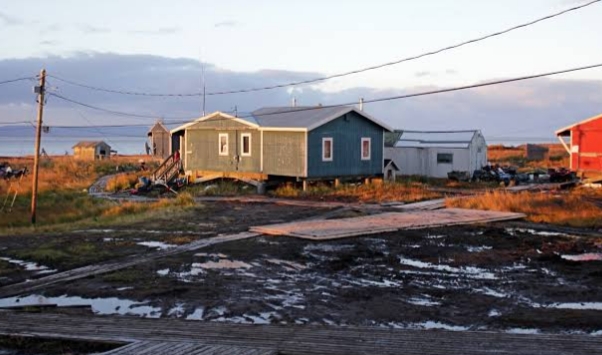INTERNEWSTIMES.COM – The village of Newtok, Alaska, is facing a stark reality: climate change has rendered its home uninhabitable. The last remaining residents are preparing to relocate to a new townsite, Mertarvik, 14 kilometers away, joining others who began moving in 2019. This makes Newtok one of the first Alaska Native villages to complete a large-scale relocation due to climate change.

Erosion and melting permafrost have been steadily destroying Newtok, eroding the land at a rate of 21 meters per year. The village’s infrastructure has been severely damaged, with power poles tilting precariously and a single storm threatening to knock out power permanently.
The relocation has been a long and arduous process, spanning over two decades. Finding a new location and securing government approval for land swaps has been a complex and time-consuming process. The move has also been financially taxing, with Newtok spending an estimated $160 million to date.
The story of Newtok highlights the urgent need for federal action to address the impacts of climate change on Alaska Native communities. These communities, many of which are located in areas vulnerable to erosion, flooding, and permafrost melt, are facing an existential threat.
While some federal funding sources exist, they are often insufficient and require lengthy approval processes. Experts argue that a dedicated funding source is needed to assist communities in securing land for relocation and to address the significant costs associated with moving.
The relocation of Newtok serves as a stark reminder of the devastating consequences of climate change and the need for immediate action to protect vulnerable communities. The story also underscores the importance of cultural preservation and the resilience of Alaska Native communities in the face of unprecedented challenges. (Red)























